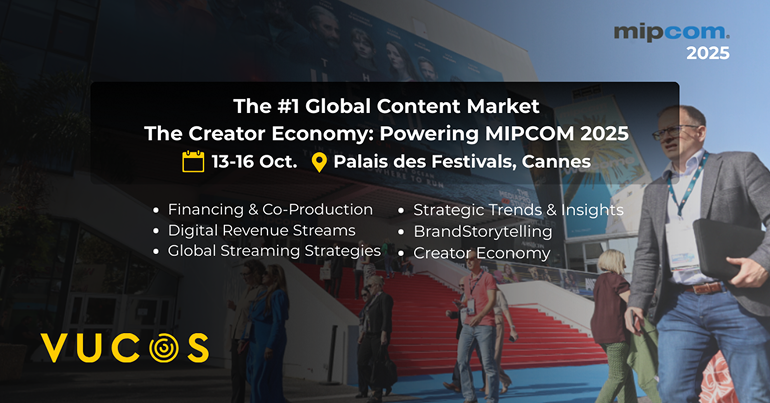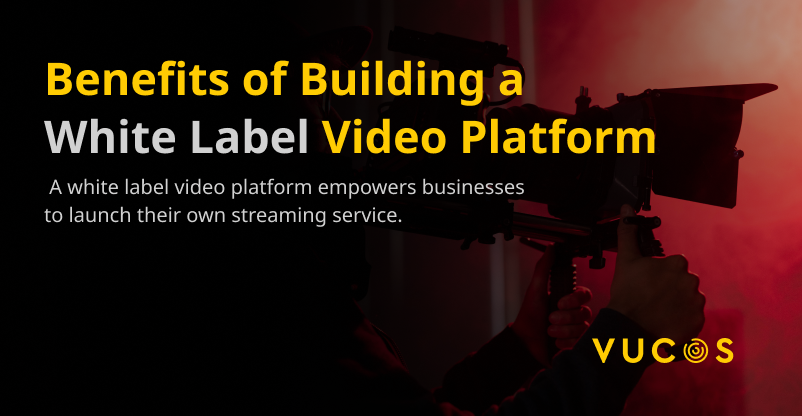From Linear to FAST: How European Broadcasters are Using MIPCOM to Secure Their Future
- Didem Sübar
- Sep 26, 2025
- 3 min read
In an industry defined by constant change, media experts like Dan Rayburn argue for a strategic, data-driven approach focused on long-term sustainability rather than short-term gains. His guidance is particularly relevant for European broadcasters navigating the shift from traditional linear television to new, agile business models. MIPCOM, the annual gathering in Cannes, has become a pivotal platform for this transition, where traditional players forge the partnerships necessary to embrace the future of digital content.
This article examines how MIPCOM is serving as the bridge for this evolution, highlighting a key case study that demonstrates a clear, data-driven move toward the new era of ad-supported streaming.

The FAST Revolution: A New Business Frontier
Faced with a rapidly changing landscape, from linear to fast, content creators are increasingly looking to monetize their libraries and find new revenue streams beyond traditional broadcast and subscription models.1 One of the hottest topics at MIPCOM is the rapid expansion of FAST (Free Ad-supported Streaming TV).2 This model allows broadcasters to repackage their existing content into themed channels, offering it to audiences for free, while generating revenue from advertising. MIPCOM recognizes the strategic importance of this shift, with its MIP Innovation Lab and dedicated summits on "AI, FAST, streaming," and "Connected TV" designed to help businesses adapt and unlock these new revenue streams.3
Case Study: ZDF Studios and Samsung TV Plus
German public broadcaster ZDF's commercial arm, ZDF Studios, provides a powerful example of how a traditional European media institution is leveraging this new model. The company has announced a partnership with Samsung TV Plus to launch 20 new FAST channels across Europe.7 This move is not just a one-off deal but an expansion of a partnership that has already seen the successful launch of the documentary channel
Terra X in 2022.5
Dr. Markus Schäfer, President and CEO of ZDF Studios, has explicitly referred to FAST channels as an "attractive business area with a wide range of growth prospects."6 The strategy involves curating highlights from ZDF's extensive catalog to serve the "lean back" viewing needs of users.6 The initial phase of this deal includes the launch of two new channels in Germany:
Bares für Rares and ZDF kocht!, both of which draw on popular shows from ZDF's existing programming.5
This partnership underscores several key trends:
Monetization of Library Content: It demonstrates a proactive strategy to find new life and revenue for established and beloved linear TV content in the digital space.
Strategic Partnerships: The deal highlights the critical importance of traditional broadcasters collaborating with major technology platforms, in this case, Samsung, to access new distribution channels. Samsung TV Plus is pre-installed on millions of smart TVs in Germany, providing a direct pathway to audiences.5
A Focus on Specific Verticals: By creating curated channels like ZDF kocht! (cooking) or Bares für Rares (antiques), the broadcaster can target specific, engaged audiences, which is a key to success in the fragmented FAST ecosystem.
This trend is not isolated. The research also mentions BBC Studios' pact with Pluto TV to establish a Top Gear FAST channel in German-speaking territories, France, and Italy, further solidifying this as a major strategic shift for European broadcasters.2
Conclusion: A New Purpose for MIPCOM
MIPCOM's role has evolved to meet the demands of this digital transformation. It is no longer just a marketplace for buying and selling shows but a strategic hub where traditional and digital players meet to forge the partnerships that will define the future of the industry. The ZDF Studios case study is a prime example of how a European broadcaster is using the MIPCOM ecosystem to adapt, innovate, and unlock new revenue streams, ensuring its relevance in the "post-peak-TV" landscape.3 By focusing on strategic deals, co-production, and technological innovation, MIPCOM remains a vital barometer and catalyst for the entire media industry.



Comments